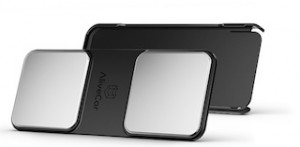 It's been almost a year since AliveCor began offering its first FDA-cleared algorithm, its atrial fibrillation detection algorithm, to customers. Now the company has released some data on how customers are using the algorithm to detect atrial fibrillation.
It's been almost a year since AliveCor began offering its first FDA-cleared algorithm, its atrial fibrillation detection algorithm, to customers. Now the company has released some data on how customers are using the algorithm to detect atrial fibrillation.
According to AliveCor, 30 percent of AliveCor users have received a diagnosis of atrial fibrillation through the algorithm. More than half of those that received a diagnosis received it within a week of their first AliveCor ECG recording, and 80 percent received it within a month of that first use.
That means for the most part, AliveCor users are catching atrial fibrillation early, which is a departure from the status quo. AFib doesn't always have obvious symptoms, and it often isn't caught until it leads to a complication.
"Atrial fibrillation is the most common arrhythmia in the United States," Richard Wong, a Kaiser Permanente cardiologist, said in a statement. "It can be challenging to detect as almost 50 percent of patients are asymptomatic, until they develop a stroke or heart failure, which can be devastating. Being able to diagnose AFib before the development of complications has the potential to significantly improve the lives of numerous people. Having a mobile ECG monitoring device like the AliveCor Mobile ECG has been extremely helpful for me in my practice, specifically when screening for this potentially life threatening arrhythmia."
AliveCor also reported that 63 percent of its US users have recorded their ECG in their Heart Journal, a part of the AliveCor app that allows users to contextually track ECG readings alongside symptoms and daily activities.
"Our goal is to attack AFib head-on and it is promising to see the results our users are reporting," Euan Thomson, chief executive officer of AliveCor said in statement. "We plan to develop more algorithms and help advance the science around what might be triggering and impacting AFib patients, so that we can potentially save lives and reduce healthcare costs.”
At the beginning of the year, the FDA cleared two new algorithms for the company: one that detects whether ECGs are free of abnormalities and one that detects interference that might be caused by shaky hands or a noisy room. Those algorithms were added to the app in March.



















